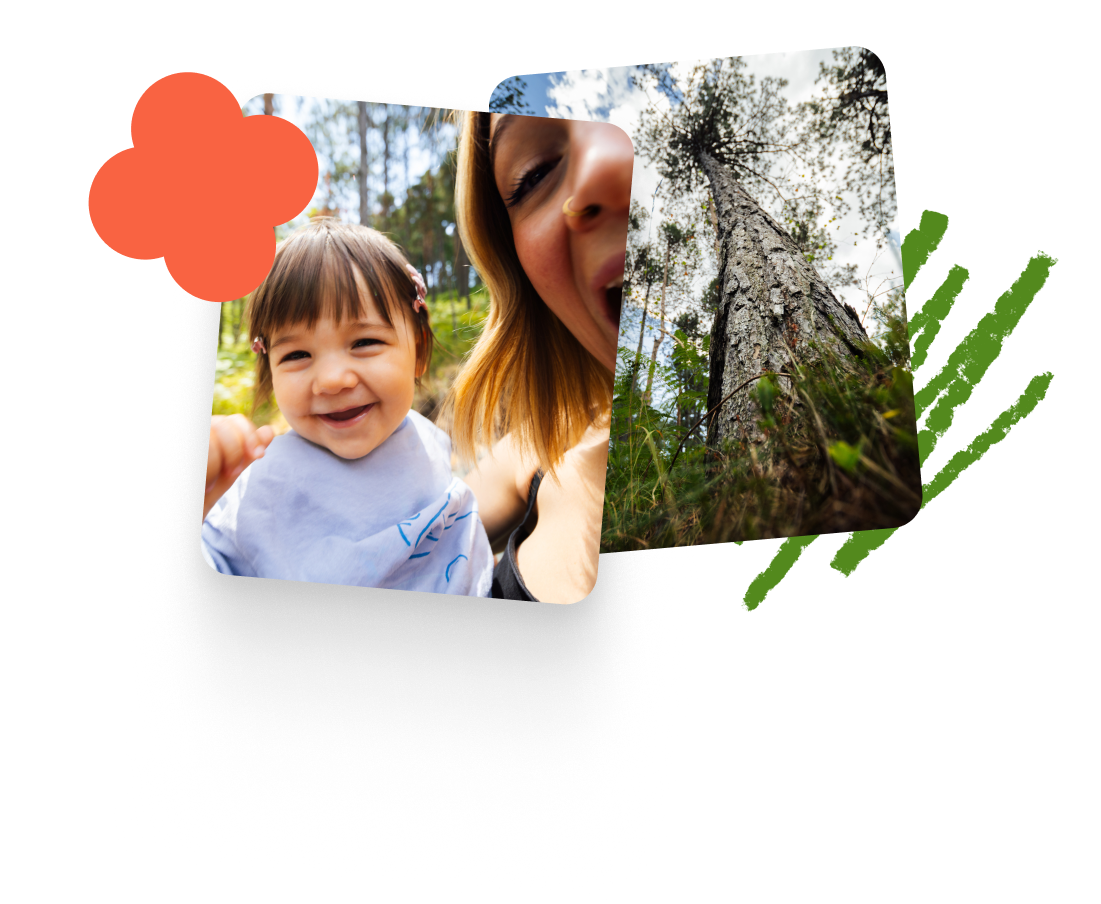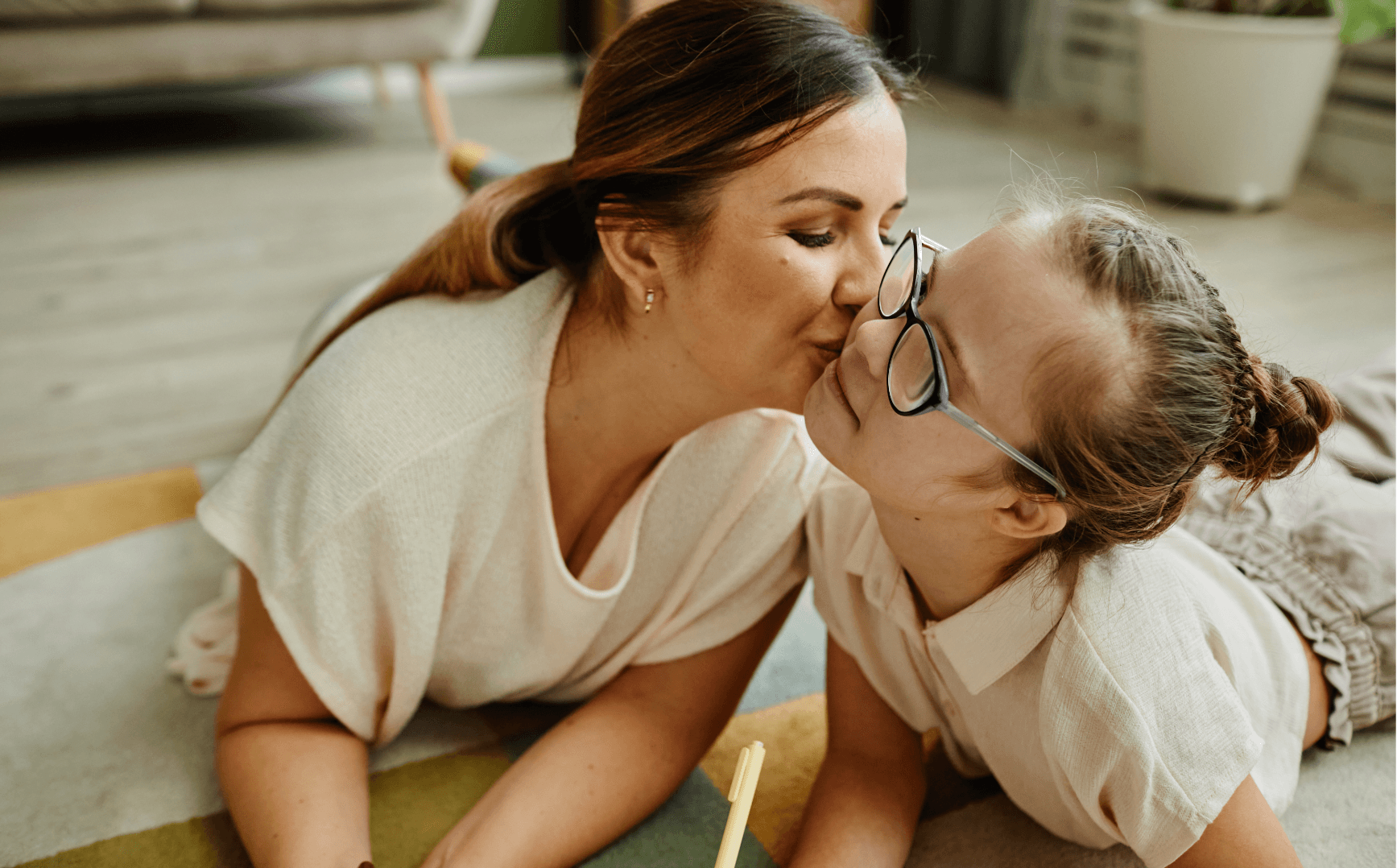
is now part of
Joy Parenting Club!
Families and care organisations using Heba will now have the option to also join Joy. For any questions, reach out to us at hello@heba.care

Families and care organisations using Heba will now have the option to also join Joy. For any questions, reach out to us at hello@heba.care

November 18, 2023
You’ll need a deep breath before listing Rose Reif’s credentials. She’s a licensed clinical mental health counsellor, certified rehabilitation counsellor, and qualified developmental disability and mental health professional. In a nutshell, this US-based expert helps people with disability and their families cope with anxiety, depression, and, as Rose says, just about anything else.
Having started her career in disability support, Rose worked with children and adults with a wide range of developmental disabilities and types of neurodivergence.
“They all had one thing in common, though,” she says. “They had practically no mental health resources designed to meet their needs. I often struggled to find a mental health counsellor who felt willing to work with my clients, let alone competent to do so.”
Keen to do her bit in plugging this gap, Rose got trained up, earned that lengthy list of credentials and launched a private counselling practice where, originally, she planned on only working with disabled adults.
“After a few months, though, I started to get calls from parents who told me that my blog posts and podcast interviews resonated with them,” says Rose.
“They felt that other therapists thought they were ‘just being dramatic’ when they described their unique challenges parenting a child that the world does not accept or accommodate. I realised that this, too, was an unmet mental health need in the disability world.”
Rose now works with both people and parents in the disability space from her practice in Cary, North Carolina and more broadly through telehealth consults. Recently, she added ‘author’ to achievements.
Her book,Helping Your Child with Down syndrome to Understand Death and Cope with Grief , was published earlier this year – and while it targets a particular demographic of parent carer, as readers will attest, there’s plenty in there for us all.
Rose shares why and how she wrote this book, along with some of her advice for being better supporters of people with Down syndrome and other disabilities.
We read that the inspiration behind your new book included a burnt chilli dinner. Tell us what happened.
I was home one weekend spending a lazy day with my family – watching football, building Legos, and cooking a big pot of chilli. I got a call from a woman in another state who’d read a brief blog post I’d written. The post was titled “How to Talk to A Person with Down Syndrome About Death, Even if You Aren’t Sure You Should”.
The woman explained that her husband had died the night before, and she was unsure how to tell her adult daughter about his death. She didn’t know what words to use, she didn’t know if she should cry in front of her daughter. At one point, she questioned whether she should tell her daughter at all, or if she should try to hide the truth from her. These were questions I’d heard countless times from other parents throughout my career.
It made me incredibly sad that she said the only resource she’d been able to find was my blog post. After giving her some suggestions and encouragement, I hung up the phone and began scribbling notes about what I’d put into a book on the topic. An hour later the pot of chilli was burned beyond saving, and I was still writing.

When it comes to major life events and emotions like death and grieving, what are some examples of challenges that can specifically impact families raising kids with Down syndrome?
People with Down syndrome often thrive when there is predictability and routine. When there is a loss in the family, there will often be changes to daily or seasonal routines. I encourage families to always be sure they are explaining in very concrete terms what is happening, and what will happen next. When it comes to death, people with Down syndrome often have questions related to “The Four C’s”.
Did I Cause it?
Could I Catch it?
Could I have Cured it?
Who is going to Care for me?
Even if your loved one cannot directly articulate that these are their worries, I encourage you to answer these questions during your discussions about a death in the family.
Down syndrome, like most disabilities, exists on a spectrum. How have you factored a vast range of experiences into your book?
I have tried to share strategies that can be modified by simplifying language or complementing what’s said with a visual aid. I find that experiential learning can be especially meaningful for people with Down syndrome, which is why readers will find lots of examples of tangible exercises to do to help their loved ones understand and express themselves.
For instance, you could show water flowing through a straw to explain how blood normally moves through our bodies to keep us healthy. Then, you could stop the straw with a small piece of modelling clay to show how a stroke stops blood from moving through the body.
Your book is beautifully written and very practical, with helpful tools like scripts for families to use as they navigate death and grief with their child. Can you tell us a bit about your process of writing, structuring and putting this book together? What did you want this book to be – and what did you want it not to be?
At the start of each chapter, I share a story about a family or individual I’ve worked with in the past. The writing was really informed by these stories, and others that colleagues and parents shared with me throughout the writing process. It was important to me that readers found the book approachable, and not overly technical or jargony. After all, if they are reading a book about explaining death, they have likely experienced a loss themselves.
It was also important to me that I did my best to incorporate a wide range of faith experiences into the strategies recommended. After all, how we talk about the permanence of death is going to be influenced by the degree to which we believe in the concept of soul, or the process of reincarnation. I hope that I have shared advice that will be relevant and helpful to families from a variety of faith perspectives.
The families I've passed your book on to have loved it and told me there are strategies in there that are equally applicable to scenarios other than grief and death. How can this book help families raising kids with Down syndrome – and perhaps other families in the disability space – more broadly?
The communication strategies I’ve recommended in the book are really those that are considered best practice for any conversation with someone with Down syndrome, and with many other disabilities as well. Using concrete rather than abstract language is probably the main thing that I see family members struggle with during difficulty and everyday conversations.
Confirming understanding, especially as a way of ensuring that the person isn’t simply saying what they think is right or what you want to hear, is also a critical thing to do when talking with someone with Down syndrome.
Finally, I do find that a concept map can be an especially helpful thing to use when you are struggling to introduce a difficult topic to a person. As I explain in the book; it means nothing to tell someone that “All living things die” if they do not understand that all people, animals, and plants are living things. And even if they know that, it does not mean much to them unless they understand that dying is permanent, and that things do not come back to life after they have died.
What words of advice do you have for parents of kids with Down syndrome who are going through loss or grief in their family (aside from getting their noses in your book, of course!)?
There are two tendencies that I see in many grieving parents. It’s my sincerest hope that, after reading the book, parents will know confidently why they shouldn’t do either.
One tendency is to not disclose that someone has died. Parents are often fearful that their child won’t understand. Or they fear that they will understand, and they don’t want to make their child sad. But, even if your loved one with Down syndrome has very limited receptive language ability, and does not understand the concept of death, they will still experience a loss if someone is suddenly gone. They will still wonder when the person will return and may become distraught when they don’t. So even if you aren’t giving a detailed explanation about what death is, it’s still important that you acknowledge and deal with the loss.
Alternatively, sometimes parents are afraid that if they tell their child someone has died, they will make their child sad. I usually have a gentle but frank conversation with these parents, pointing out that if their child would be sad it means that they have a good understanding of what death is.
Mental health does not mean being happy all the time. It’s normal and healthy to be sad when sad things happen. Allowing our children to experience grief is allowing them to know the full range of human emotions.
It’s also giving them the opportunity to be part of the family’s healing after loss. As I explain in the book, this has shown to be tremendously important for people with Down syndrome as a way of understanding and accepting loss.
The other tendency is for parents to believe that it’s helpful and important for them to “shield their child” from their own grief. If I had a dollar for every time I’ve heard a parent say “I can’t let my child see me cry”… let’s just say I’d be a very wealthy lady.
Unfortunately, while parents believe that this will protect their child, it actually has the effect of invalidating and isolating the person with Down syndrome. The child may wonder “Why am I the only one crying? Am I wrong to be upset? Everyone else seems to be doing OK, what’s wrong with me?”
Letting your child see your sadness normalises their feelings, and also gives them a model for healthy ways to express their grief. I have seen families develop some truly lovely traditions to commemorate people they’ve lost. But, that’s only possible when parents are brave enough to express their grief to their children.
Any final words of advice you’d like to share?
Yes, it’s a small piece of advice, but one that I find is especially helpful. Often when we talk about someone’s death, we use relative calculation to explain when they died. So, we might say “He died last spring” or “She died five years ago”.
What research indicates – and what I have seen throughout my career – is that eventually people with Down syndrome tend to stop recalibrating. So, they may say “my Grandmother died two Christmases ago”, when actually she died 10 years ago.
I always recommend that families teach the person with Down syndrome to say the full date of a person’s death to avoid confusion in the future. So, instead of saying “She died two months ago”, say “She died on April 12, 2023”.

Rose Reif's book,Helping Your Child with Down syndrome to Understand Death and Cope with Grief, is available to buy on Amazon. You can follow Rose’s work and read her blog on her website.
Let’s clear out the complexities of care. Try Heba for free here.
Want to share your parent-carer story? We’d love to hear it. Get in touch with our team at hello@heba.care